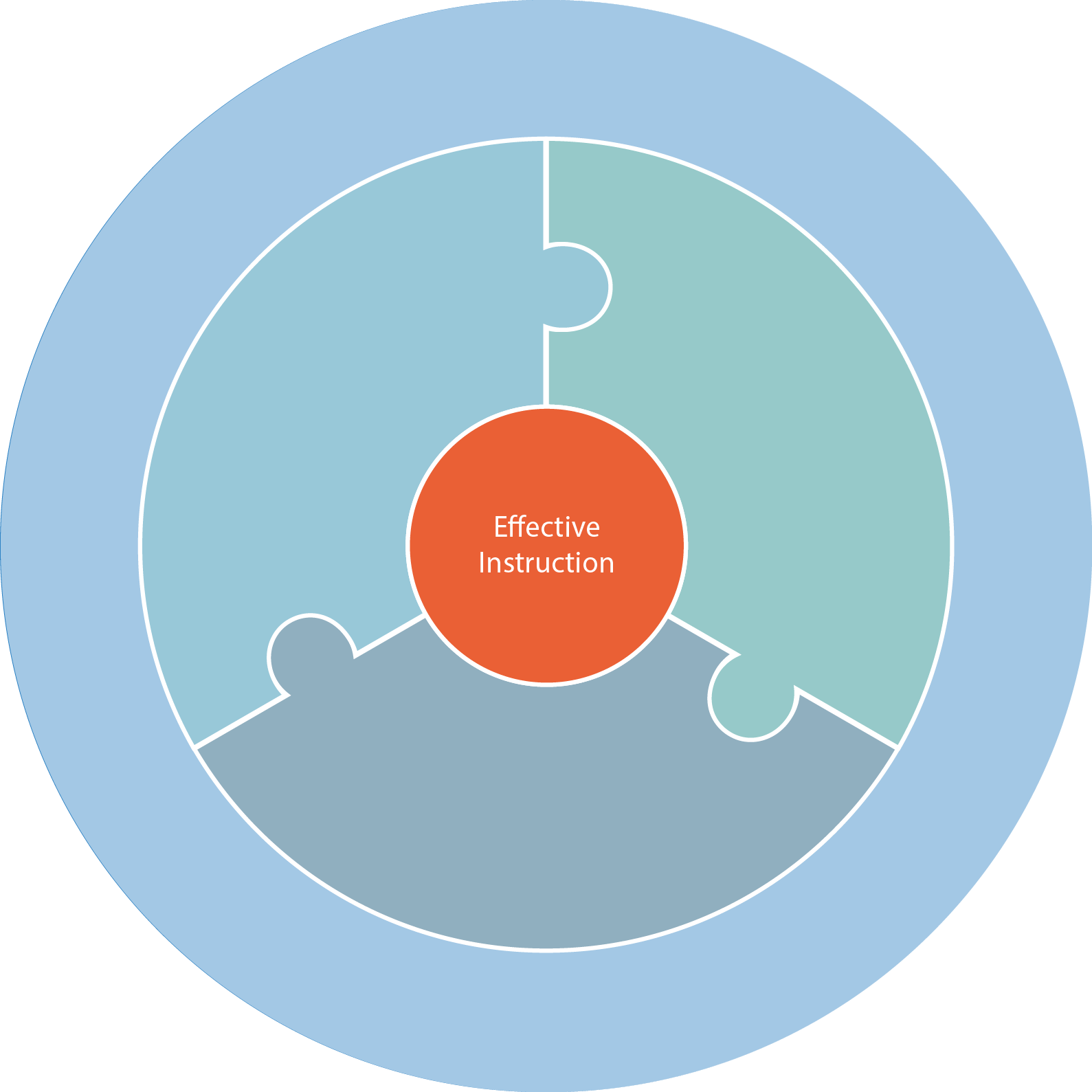Lever 5
EFFECTIVE INSTRUCTION
Campus leaders provide teachers with job-embedded professional development, including observation and feedback cycles, and access to time and data needed to reflect, adjust, and deliver instruction that meets the needs of all students.

District Commitments:
District commitments describe what local education agencies do to ensure that schools are set up for success.
- The district ensures that campus instructional leaders receive initial training and ongoing coaching to support the implementation of instructional leadership systems (feedback on instructional materials alignment and use, data-driven instruction, leading effective professional development, and observation and feedback).
- District policies, practices, and provided resources support effective instruction in schools.
- For assessments that are district provided and graded, the district ensures that schools receive detailed reports within two instructional days.
- The district provides schools with access to student academic, behavioral, and on-track to graduate data (present and historical).
- The district has effective systems for identifying and supporting struggling learners.
- The district provides an interim data assessment platform to capture assessment data by item and student level.
- The district’s annual academic calendar includes days for school based professional development activities that align with the assessment calendar and allow for data-driven reflection.
Essential Actions
Essential Actions describe what the most effective schools do to support powerful teaching and learning. The first essential action listed under the priority is foundational — schools should address first in continuous improvement efforts, as they provide the foundation upon which the other essential actions develop.
5.1
FOUNDATIONAL ESSENTIAL ACTION
Professional Development for Effective Classroom Instruction
- Campus instructional leaders provide training and support so that teachers consistently implement content specific best practices.
- Campus instructional leaders provide training and support so that teachers consistently implement research based best practices for delivering rigorous instruction in any content.
- Campus instructional leaders provide training and support to teachers on consistently implementing strategies for inclusion and support for students who are members of special populations groups.
5.2
Build teacher capacity through observation and feedback cycles
- Campus instructional leaders use established tools and processes to conduct observations, capture trends, and track progress over time.
- Campus instructional leaders determine the frequency of observations based on teacher needs and student results on formative assessments.
- Campus instructional leaders lead observation debrief conversations as soon as possible (within 2-3 school days) of observation and focus on the implementation of a high leverage goal or action step.
- Observation debrief conversations feature follow-up on prior goals or action steps, clear models, and opportunities to practice.
5.3
Data-driven instruction
- Campus instructional leaders review disaggregated data to monitor the progress of all students, provide evidence-based feedback to teachers, and inform instructional responses.
- Campus leaders facilitate a consistent process for teachers, individually and in PLCs, to analyze data, identify trends in student misconceptions, determine the root cause as to why students may not have learned the concept, and create plans to respond.
- Campus leaders provide teachers with protected time for in-depth conversations about formative student data and possible adjustments to instructional delivery.
- Student progress toward measurable goals (e.g., % of class and individual student mastering of objectives, individual student fluency progress, etc.) is visible in every classroom and throughout the school to foster student ownership and goal setting.
5.4
MTSS for students with learning gaps
-
All staff are engaged in coordinated and proactive planning to identify students who have significant learning gaps or who lack key foundational skills and provide them with timely interventions throughout the year.
-
All teachers use a student tracking system that includes assessment information, course grades, teacher referrals, and attendance to monitor individual student progress and the intensity and schedule of interventions.
-
Teachers or other school staff keep families informed and involved in the process of providing interventions for struggling learners.

